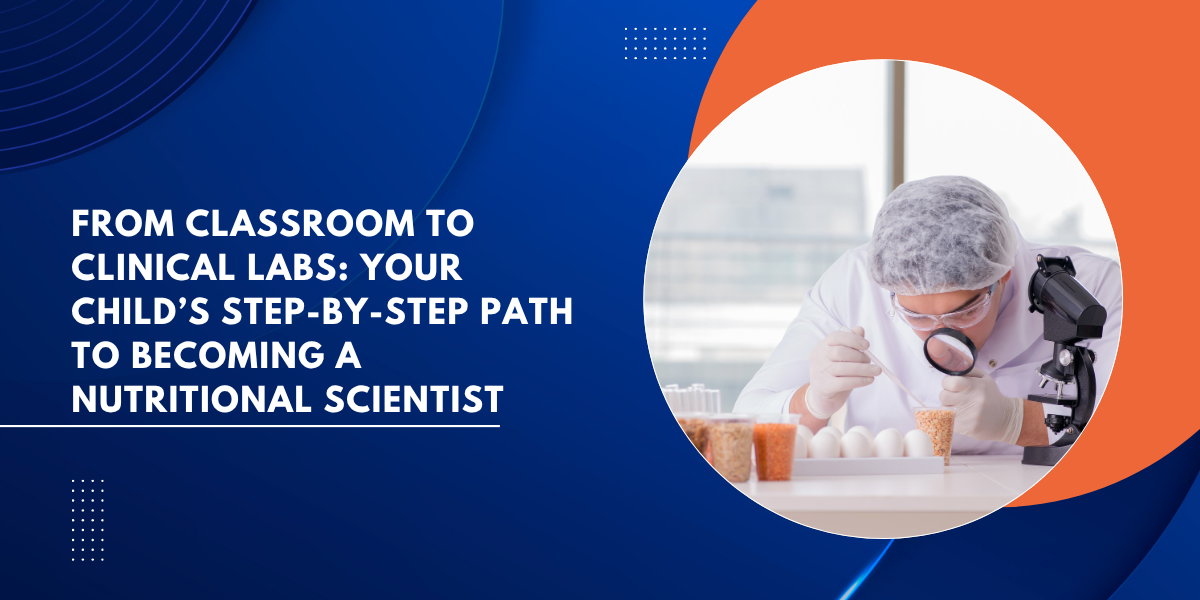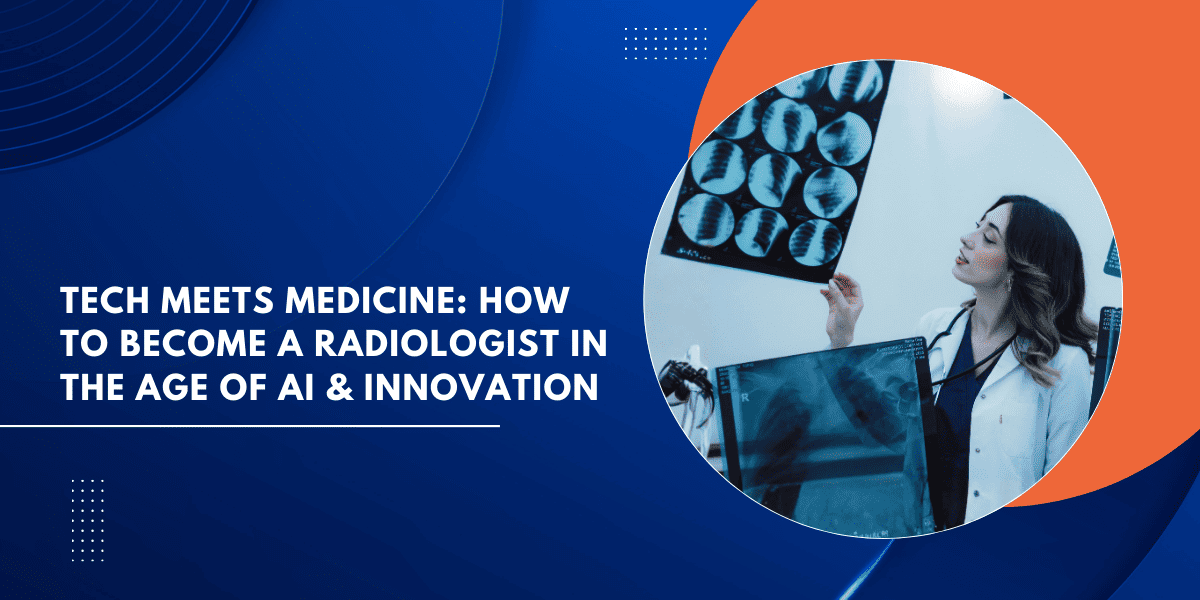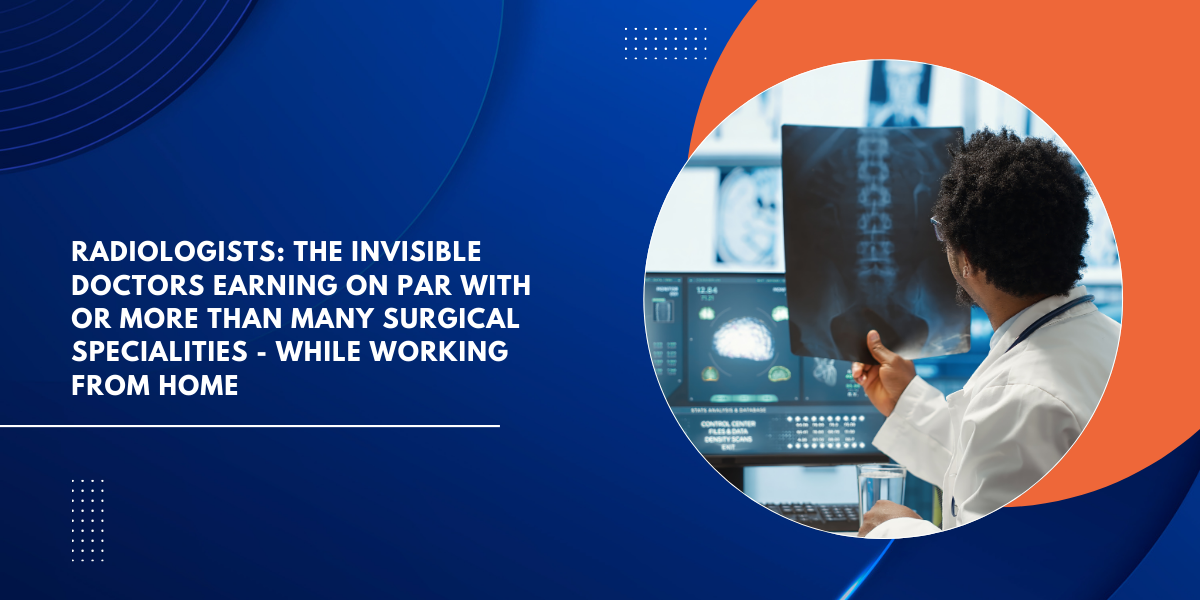Blog written by Indu R Eswarappa, Career Coach & Education Change-Maker
Introduction to the Career: Why Nutrition Science Matters Today
As a career coach, one of the most common questions I get from parents of science-loving students is:
“My child is good at biology but doesn’t want to become a doctor. What are the other meaningful career options?”
If this sounds familiar, let me introduce you to one of the most exciting, future-ready roles in healthcare—Nutritional Scientist.
In my opinion, it’s the perfect blend of biology, chemistry, wellness, and research. It’s not just about giving diet plans—it’s about exploring how nutrients affect our genes, how food can prevent disease, and how we can build better public health systems through science-backed nutrition.
With rising health issues like obesity, diabetes, and food intolerances, the role of a Nutritional Scientist has never been more crucial. And the best part? It’s a career where your child can genuinely make a difference—without needing to crack NEET.
Key Responsibilities & Work Environment
What Exactly Does a Nutritional Scientist Do? (And Why It’s So Impactful)
When I first guide a student toward the field of nutritional science, the question that usually follows is:
“What would I actually do in this career?”
And that’s such an important question—because this is not just a “food” career. It’s a science-driven, research-intensive, and incredibly impactful role that touches millions of lives.
In my opinion, a Nutritional Scientist is like a detective of health, constantly decoding how nutrients affect the body, how food systems impact society, and how we can prevent illness through better choices.
Let me walk you through the key responsibilities:
1. Researching Nutrient Functions
You’ll study how different nutrients (like iron, vitamins, or omega-3s) affect human metabolism, growth, and disease resistance.
Example: Investigating how vitamin D deficiency contributes to autoimmune disorders.
2. Designing and Conducting Clinical Trials
From testing new food supplements to studying the effectiveness of diet interventions in diabetic patients, you’ll be involved in structured research and human studies.
You might work alongside doctors, dieticians, or pharma companies.
3. Exploring Nutrigenomics & Personalized Nutrition
This is one of the most exciting parts—understanding how our genes interact with the food we eat. You’ll explore why one diet works for one person but not another.
Future-forward and essential for personalized healthcare.
4. Creating Public Health Guidelines
As a Nutritional Scientist, your work can influence national or global food policies. You might contribute to developing school meal standards, or campaigns on reducing sugar intake.
Real-world impact through data-backed advocacy.
5. Collaborating with Multidisciplinary Teams
You won’t work alone. Expect to team up with biochemists, food technologists, epidemiologists, and even product developers in the health & wellness industry.
This makes your day-to-day work dynamic and never boring.
Takeaway: If your child enjoys science, wants to contribute to real-world health outcomes, and prefers structured research or applied knowledge over clinical practice—this is a fulfilling and future-ready career.

Where Will You Work as a Nutritional Scientist? (Hint: It’s More Than Just a Lab Coat!)
One of the things I love about this career is how versatile it is. When parents or students ask me, “Will I just be stuck in a lab all day?”, I always say—absolutely not!
In my experience, Nutritional Scientists work in a wide range of exciting and meaningful environments, and each comes with its own vibe and opportunities for growth.
Here’s a quick peek into the real-world settings where you or your child might work:
1. Research Laboratories
This is the core environment, especially in universities, government-funded research institutes, or pharmaceutical labs. You’ll work with microscopes, chromatography tools, and complex data analysis software.
Ideal for students who love solving mysteries at the molecular level.
2. Hospitals & Clinical Research Centers
Here, you may be involved in studying the effects of diets or supplements on patients with chronic conditions like diabetes, obesity, or cancer.
Great for those who want to see direct health outcomes from their research.
3. Food & Nutrition Companies
From designing healthier snacks to testing fortified foods, you’ll collaborate with R&D teams to create consumer products backed by science.
I’ve seen students land exciting jobs at places like Nestlé, Unilever, and Tata Health.
4. Government & Public Health Bodies
You can work on national food safety standards, conduct nutrition surveys, or develop school lunch programs with ministries or organizations like ICMR, FSSAI, or WHO.
If policy-making and large-scale impact excite you, this is your space.
5. Academic & Teaching Institutions
Love the idea of guiding the next generation? Many nutritional scientists move into teaching or mentoring roles in colleges or universities after their post-graduate studies.
Perfect for students with a passion for both science and education.
6. International NGOs & Research Projects
Organizations like UNICEF, FAO, and the Gates Foundation often need nutrition experts for global initiatives—especially in undernourished or food-insecure regions.
This is for students who dream of working on global health missions.
Takeaway: Whether you’re a hands-on lab enthusiast, a policy thinker, a wellness innovator, or a passionate teacher—there’s a place for you in this field. It’s not one-size-fits-all, and that’s what makes being a Nutritional Scientist so exciting.

Educational Pathways & Required Qualifications
So how exactly does my child become a Nutritional Scientist?”
That’s one of the most common questions I get from curious students and parents—and I love answering it, because this path is structured and full of exciting opportunities.
In my experience, this journey is perfect for students who are passionate about biology, enjoy solving real-world health problems, and want to make a tangible impact through food science and wellness. Let’s break it down step by step:
1. Choose PCB in 11th and 12th Grade
The foundation begins right here.
A strong base in Physics, Chemistry, and Biology (PCB) is a must if your child wants to pursue nutritional science in the future. Some schools also offer Home Science as an optional subject, which provides early exposure to food science, health, and diet-related concepts—a great bonus!
2. Pursue a Bachelor’s Degree (3–4 Years)
Undergraduate Courses & Top Colleges in Nutrition Science
3. Specialize with a Master’s Degree (2 Years)
This is where students go deeper.
A M.Sc. in Nutrition or Nutritional Science helps develop advanced skills in clinical nutrition, public health nutrition, sports nutrition, or food research.
It also opens doors to hospitals, research labs, and health policy organizations.
- M.Sc. in Nutritional Science
- M.Sc. in Public Health Nutrition
- M.Sc. in Clinical Nutrition
4. Optional: PhD or Research Fellowship
For those who want to go beyond applied practice and move into research, innovation, or teaching, pursuing a PhD is a powerful next step.
This is where your child can contribute to cutting-edge studies on obesity, malnutrition, lifestyle diseases, or even influence national food policy.
Entrance Exams (After 12th for UG Courses)
One of the most important turning points in your child’s journey to becoming a Nutritional Scientist is clearing the right entrance exams after 12th.
Parents often ask me, “Are there specific tests for this field?” The answer is yes—but the good news is, they’re not as daunting as you might think. With the right focus and preparation, students from a PCB background are well-equipped to handle them.
These exams aren’t just about gaining admission—they also help students build the academic mindset required for success in the field of nutritional science and allied life sciences.
Here’s a snapshot of the entrance exams your child should keep an eye on:
Tip: Some universities like Delhi University may admit based on CUET-UG scores.
Necessary Soft Skills & Technical Abilities
In my coaching sessions, I often remind parents and students: a degree might open the door—but it’s the skills that help your child walk through it with confidence.
If your child dreams of becoming a Nutritional Scientist, they’ll need more than academic knowledge. This career sits at the intersection of science, health, and people—which means both lab precision and human insight are essential.
Let’s break this down into two vital areas—technical skills that matter in clinical and research labs, and soft skills that shape real-world impact.
Technical Skills
- Laboratory Analysis Techniques (Spectrometry, Chromatography)
These are core tools in any nutrition science lab, used to identify and measure compounds in food and biological samples. Proficiency here shows precision and scientific literacy. - Nutritional Biochemistry
Understanding how nutrients interact with the body at a molecular level is critical. This subject becomes the foundation of everything from food formulation to disease-specific diets. - Data Analysis Tools (SPSS, R)
Nutritional studies involve huge data sets. Tools like SPSS and R help make sense of patterns, outcomes, and correlations. Data literacy is a big plus in research roles. - Clinical Trials & Food Safety Protocols
Whether testing a new supplement or evaluating food programs, knowledge of ethical trials and hygiene standards ensures safety and scientific credibility.
Soft Skills
- Curiosity & Scientific Thinking
A great nutritional scientist keeps asking why and how. This intellectual curiosity fuels innovation and better health solutions. - Patience (Especially for Long-Term Research)
Unlike instant results in classrooms, research unfolds slowly. Students must develop resilience to wait, test, and refine. - Communication (Technical & Public)
From writing clear lab reports to simplifying complex facts for communities, good communication bridges the gap between science and society. - Ethics & Empathy (In Public Health Roles)
Many nutritionists work in communities where misinformation and health disparities are common. Ethical responsibility and empathy build trust—and drive real impact.
My tip: Encourage your child to work on these skills early—through internships, volunteer programs, or school projects. These real-world exposures build confidence that no textbook can.
Help your child build a future in nutrition science!
Career Progression & Growth Opportunities
When I speak with students interested in nutrition science, I always say—this field isn’t just about wearing a lab coat. It’s a dynamic career path where curiosity meets impact, and there are multiple ways to grow—whether your child loves data, wants to lead policy change, or dreams of launching something of their own.
Here’s how a typical journey unfolds in this field:
Entry-Level
- Nutrition Research Assistant
- Lab Technician
→ Supporting senior scientists in experiments, data collection, and sample analysis—this is the hands-on training ground.
Mid-Level (5–7 Years)
- Clinical Nutrition Scientist
- Food Safety Analyst
- Nutrition Data Analyst
→ Roles that involve independent research, interpreting nutritional data, and working with hospitals or food corporations.
Senior-Level
- Research Director
- Chief Scientific Officer
- Public Health Nutrition Consultant
→ Strategic positions where professionals lead teams, design large-scale studies, or advise governments on nutrition policy.
Entrepreneurship
- Startups in nutraceuticals
- wellness tech
- health education
→ Turning insights into innovations—many launch their own ventures in supplements, food apps, or wellness platforms.
Alternative Pathways
- Science Communicators
- Academic Editors
- Policy Influencers
→ Some take their expertise beyond labs—writing, teaching, or shaping public health through global organisations.
What I love most about this field? It’s flexible, future-ready, and perfect for young minds who want to blend science with purpose.
Salary Expectations & ROI (Return on Time)
Let’s talk numbers—because I know that’s on every parent’s mind!
Now, when we look at ROI (Return on Investment), it’s about what your child earns compared to what you spend on their education. And in this case, a career in nutritional science offers strong ROI—especially because many programs are affordable compared to medical degrees, yet lead to high-paying and impactful roles.
Even more importantly, let’s consider ROT (Return on Time)—how quickly your child starts seeing results after investing their effort and years. The beauty of this field? Within 5–6 years post-Class 10, students can build stable, meaningful careers—with even global opportunities opening up.
With the rising demand for preventive healthcare and wellness, this isn’t just a job—it’s a future-proof mission.
Conclusion: Who Should Consider This Career?
In my opinion, the path to becoming a Nutritional Scientist is ideal for students who:
- Love biology and chemistry
- Enjoy research and lab work
- Want to work in healthcare but not as a doctor
- Are passionate about solving real-world health issues
- Seek flexibility—public health, product innovation, clinical research, or even entrepreneurship
If your child’s curiosity revolves around “how food affects the human body”, and they want to use science to improve lives—this is the career to nurture.






















